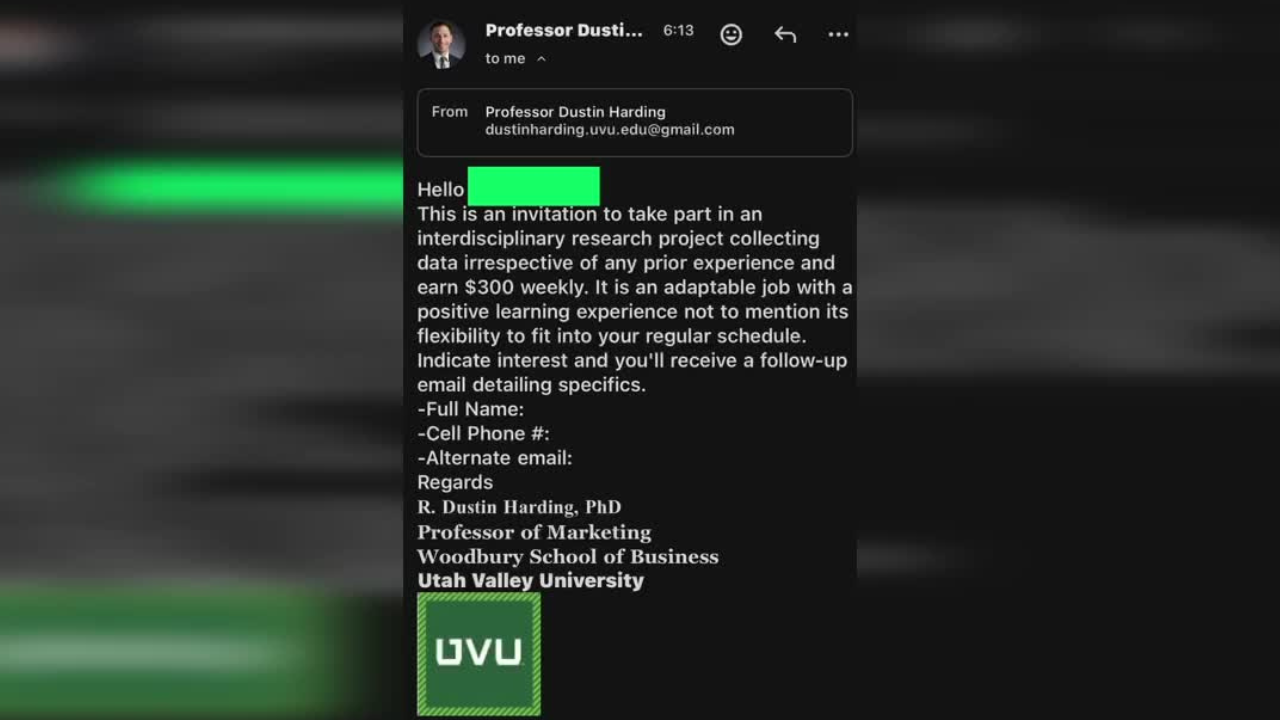OREM, Utah — A new scam targeting local university students by impersonating their professors has found a victim at Utah Valley University, leading one of the professors involved to step in to support those who’ve been victimized.
As an associate professor of marketing in the Woodbury School of Business, Dustin Harding teaches roughly 120 students per semester at the school that has an enrollment of over 40,000 students.
“As a marketing researcher, I’m constantly going through data,” said Harding,
His students also get present-day opportunities to take part in ongoing research projects from time to time.
“They’re paid through the school as student jobs,” the professor explained.
A couple of weeks ago, what appeared to be that exact offer came to student Matthew Franke — $300 a week to be part of a research project. But red flags were flying almost immediately.
“It was a UVU email showing up in my personal inbox,” said Franke, who shared that it never happens.
The email also came from Harding, a business professor he’d never met before, as the sophomore is majoring in computer science. Harding claims at least eight fellow students have now come forward to show him this same email.
Unfortunately, one of those students fell for the trick.
Last week, Harding shared how a student came up asking if he had seen her emails.
“She said the checks that I sent her had been bouncing,” Harding said.
According to Harding, the scammer had been sending her data sets to analyze, “but to get paid, she had to open up an account.”
Once the student put in her information, Harding says she was scammed out of $2,600.
“Students are particularly susceptible because they have that trust in a faculty member, and their budgets are normally tight,” Harding said.
After falling for the scam, Harding's student went into the negatives in her bank account and had to take out a loan. She’s since filed a police report, and the university’s IT department has blacklisted the Gmail address connected to the scheme.
However, as of Monday, Harding claimed the scammer continues to target UVU students by finding personal emails. He wants to spread awareness of the increasingly deceptive tactics to save other students from financial losses.
“When you do receive something that’s too good to be true, it’s probably not true,” Harding said. “But it’s always good to go straight to the source.”
The professor also set up a GoFundMe page to help his student get her stolen money back.
“I could see the stress setting in when she realized what was happening," he said, "and I wanted to do what I could to help out."




